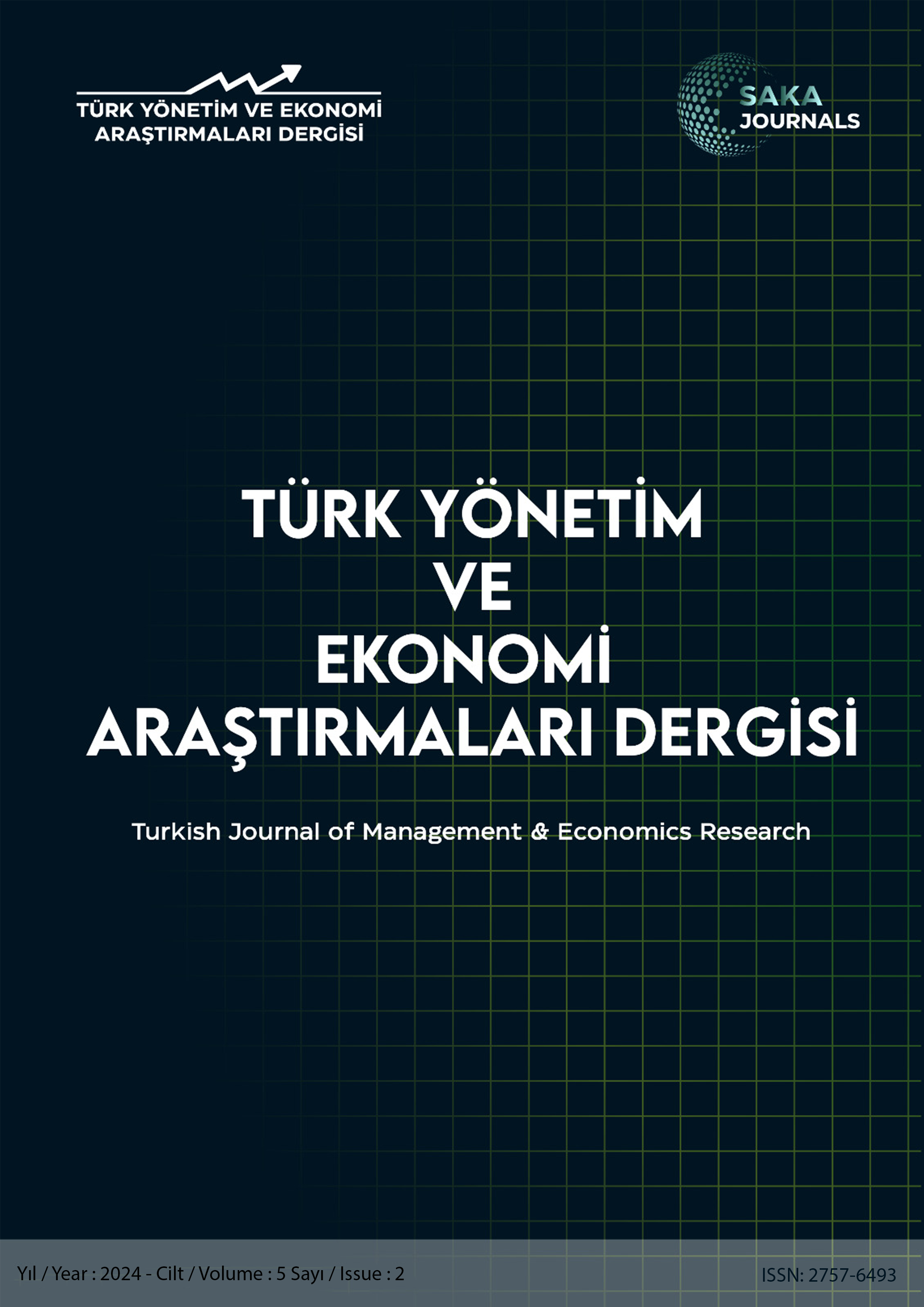“Zero Waste Project” as a Waste Management Strategy and Application Examples in Turkey
Keywords:
Zero Waste Project, Historical Development, Municipality ApplicationsAbstract
Population growth, urbanization, industrialization and technological developments, which are considered to be the main causes of environmental problems, are increasing day by day. While environmental problems were initially referred to as “pollution”, today it is seen that this situation has reached more serious dimensions. One of the most obvious examples of this is the increase in the amount of waste. Factors that are seen as the causes of environmental problems have led to the change and diversification of production and consumption habits, which in turn has led to the change and diversification of both waste and its quantities. Subsequently, today, all countries of the world have become at war with waste. Considering that life in the world will continue and production and consumption will increase in parallel with population growth, it is essential that initiatives to solve the waste problem increase. At this point, the “Zero Waste Project”, which has recently occupied the agenda of the whole world on waste management, has been put into practice as an important waste management model. The basic logic of the project is to prevent waste before it is generated, to create no waste if possible, or to solve the waste problem in a way that causes the least damage to the environment. Based on these, the aim of the study is to reveal what kind of functions the zero waste project, which has recently become very popular in the world, has undertaken at the point of solving the waste problem and how municipalities have implemented this project. In this context, the study first presents the detailed conceptual framework of the zero waste project. Then, the historical process of the zero waste project is analyzed both in the world and in Turkey. Finally, examples of zero waste projects implemented by municipalities that have implemented zero waste projects in Turkey are given. In addition, it was determined in the study that the municipalities that implemented the zero waste project made great contributions to the environment in reducing environmental pollution, strengthened sustainable development by supporting the local economy through methods such as recycling and reuse, and increased the level of environmental awareness by making it a lifestyle.
Downloads
References
AKŞEHİR BELEDİYESİ, https://www.aksehir.bel.tr/gundem/tum-duyurular-listesi/temizlik-isleri-mudurlugu-duyurulari/atma-tikla-projesi-guncelleniyor, Erişim Tarihi: 10.11.2024.
AKYIL, Laçin, (2023), “Avrupa Birliği’ nin Sıfır Atık Politikaları”, Türkiye’de Sıfır Atık: Tespitler, Beklentiler ve Fırsatlar Bildiri Kitabı, ss. 35-50.
ATAKUM BELEDİYESİ, https://atakum.bel.tr/haber-detay/katik-otobusu-1-haftada-1-2-ton-atik-topladi, Erişim Tarihi: 08.11.2024.
BAĞCILAR BELEDİYESİ, https://www.bagcilar.bel.tr/haber/5594/bagcilarda-1-milyon-190-bin-395-agac-geri-don, Erişim Tarihi: 08.11.2024.
BILGILI, Muhammet Yunus & ÇOLAK, Çağrı, (2021). “Sıfır Atık Yaklaşımının Ortaya Çıkışında Toplam Kalite Yönetiminin Rolü”, Ankara Hacı Bayram Veli Üniversitesi İktisadi ve İdari Bilimler Fakültesi Dergisi, 23 (3), ss. 763-786.
BILGILI, Muhammet Yunus, (2021), “Sıfır Atık Yaklaşımının Kökenleri ve Günümüzdeki Anlamı”, İstanbul Ticaret Üniversitesi Sosyal Bilimler Dergisi, 20 (40), ss. 683-703.
BILGILI, Muhammet Yunus, (2023), “Sıfır Atık Yönetiminin Çevre Etiği Yaklaşımları Açısından İncelenmesi”, Erciyes Üniversitesi İktisadi ve İdari Bilimler Fakültesi Dergisi, (64), ss. 21-28.
BULUT, Arzu & ŞENGÜL, Halil, (2023), “Atık Yönetimi ve Sıfır Atık Projesinin Değerlendirilmesi: İstanbul İli Örneği”, Sağlık ve Sosyal Refah Araştırmaları Dergisi, 5(1), ss. 85-97.
CARRICO, Melanie & KIM, Victoria, (2014). “Expanding Zero-Waste Design Practices: A Discussion Paper”, International Journal of Fashion Design, Technology and Education, 7(1), ss. 58-64.
CURRAN, T. & WILLIAMS, I. D., (2012). “A Zero Waste Vision for Industrial Networks In Europe”, Journal of Hazardous Materials, 207-208, ss. 3-7.
ÇEVRE, ŞEHIRCILIK VE İKLIM DEĞIŞIKLIĞI BAKANLIĞI, (2022), Alıntı: https://cygm.csb.gov.tr/sifir-atik-uygulamalari-dairesi-baskanligi-i-108111, Erişim Tarihi: 21.10.2024.
DİLOVASI BELEDİYESİ, https://dilovasi.bel.tr/haber/1/2117/dilovasinda-hedef-sifir-atik, Erişim Tarihi: 07.11.2024.
DİLOVASI BELEDİYESİ, https://www.dilovasi.bel.tr/haber/1/2391/sifir-atik-calismalari-devam-ediyor, Erişim Tarihi: 07.11.2024.
ERGULEN, Ahmet & ATCI, Fadime, (2020), "Toplam Kalite, Çevre ve Sıfır Atık Yönetimi; Yaklaşımlar, Kazanımlar ve Eleştiriler", Çukurova Üniversitesi İktisadi ve İdari Bilimler Fakültesi Dergisi, 24 (2), ss. 299-328.
ESENLER BELEDİYESİ, https://esenler.bel.tr/projeler/geri-donusum/, Erişim Tarihi: 07.11.2024.
GÜL, Murat & YAMAN, Kemal, (2021), “Türkiye’de atık yönetimi ve sıfır atık projesinin değerlendirilmesi: Ankara örneği", Atatürk Üniversitesi İktisadi ve İdari Bilimler Dergisi, 35(4), ss. 1267-1296.
GÜLLÜ, Gültekin, (2022), “Kentsel Dönüşümde Sıfır Atık Yönetimi”, İstanbul Sabahattin Zaim Üniversitesi Fen Bilimleri Enstitüsü Dergisi, 4 (2), ss. 112-120.
HAKSEVENLER, Betül Hande Gürsoy, KAVAK, Fatma Feyza & AKPINAR, Aydın, (2021), “Sıfır Atık Yönetimi Bilinci ve Siyasal Davranışa Etkisi: Marmara Üniversitesi Anadoluhisarı Kampüsü Üzerinden Bir Analiz”, İDEALKENT, 2021, 12 (32), ss. 622-649.
KOŞOÇAYDAN, Serkan Deniz, (2024), “İstanbul İlçe Belediyelerinde Sıfır Atık Projesinin Ekolojik Şehir Tasarımı Açısından Değerlendirilmesi”, The Journal of Turk-Islam World Social Studies, 11(41), ss. 203-235.
LADİK BELEDİYESİ, https://www.ladik.bel.tr/haber/2309/ladik-sifir-atik-projesiyle-ornek-bir-ilce-olacak, Erişim Tarihi: 08.11.2024.
LEE, Roh. Pin, MEYER, Bernd, HUANG, Qiuling & VOSS, Raouls, (2020). “Sustainable Waste Management For Zero Waste Cities İn China: Potential, Challenges And Opportunities”, Clean Energy, 4(3), ss. 169-201.
MISIR, Aybike & ARIKAN, Osman, (2022), “Avrupa Birliği (AB) Ve Türkiye’de Döngüsel Ekonomi ve Sıfır Atık Yönetimi”, Çevre İklim ve Sürdürülebilirlik, 23(1), ss. 69-78.
ÖZDIL, Tuncer & ÇIRAK, Ayşe Nur (2024). “Sıfır Atık Olgusunun Sıfır Atık Afişleri Üzerinden Göstergebilim Yaklaşımıyla Analizi”, Manisa Celal Bayar Üniversitesi Sosyal Bilimler Dergisi, 22 (1), ss. 54-74.
SIFIR ATIK İYİ UYGULAMA ÖRNEKLERİ, https://sifiratik.gov.tr/kutuphane/sifir-atik-iyi-uygulama-ornekleri, Erişim Tarihi: 06.11.2024.
SIFIR ATIK KURULUM SİSTEMİ, https://sifiratik.gov.tr/SistemKurulumu, Erişim Tarihi: 05.11.2024.
SIFIR ATIK, https://sifiratik.gov.tr/sifir-atik/sifir-atik-nedir, Erişim Tarihi: 20.10.2024.
ŞANLIURFA BELEDİYESİ, https://www.sanliurfa.bel.tr/icerik/17632/21/sanliurfa-buyuksehir-belediyesi-sokak-hayvanlari-icin-mama-uretimine-basladi, Erişim Tarihi: 07.11.2024.
TAŞ, İbrahim Ethem, DURGUN, Sadegül & AVŞAR, Yeter, (2024), “Büyükşehir Belediyelerinin Stratejik Planlarında Şeffaflık Arayışı”, Erciyes Üniversitesi İktisadi ve İdari Bilimler Fakültesi Dergisi, 67, ss. 167-176,
TUZLA BELDİYESİ, https://www.tuzla.bel.tr/icerik/11/7967/tuzla-belediyesi-sifir-atik-ligi-basliyor.aspx, Erişim Tarihi: 07.11.2024.
ÜLGÜDÜR, Nilüfer, AYDEMIR, Merve & MALKOÇ, Emine, (2024). “Kamu Kurumunda Sıfır Atık Yönetim Sistemi Uygulamasının Değerlendirilmesi”, Iğdır Üniversitesi Fen Bilimleri Enstitüsü Dergisi, 14(1), ss. 125-139.
YAŞA, Hüseyin, (2022), “Çevre (cilik) Hareketi Olarak Sosyal Medyada Sıfır Atık Hareketi”, Selçuk Üniversitesi Sosyal Bilimler Enstitüsü Dergisi, 49, ss. 212-230.
ZEYTİNBURNU BELEDİYESİ, https://zeytinburnu.istanbul/projeler/cevre-projeleri/cevre-ve-iklim-degisikligi-egitim-merkezi/, Erişim Tarihi: 07.11.2024.
ZİLE BELEDİYESİ, https://site.zile.bel.tr/index.php/2022/08/22/zile-belediyesi-70-kg-elektronik-atik-ve-5-kg-atik-yag-getiren-hanimlarimiza-market-alisveris-karti-hediye-ediyor/, Erişim Tarihi: 07.11.2024.


